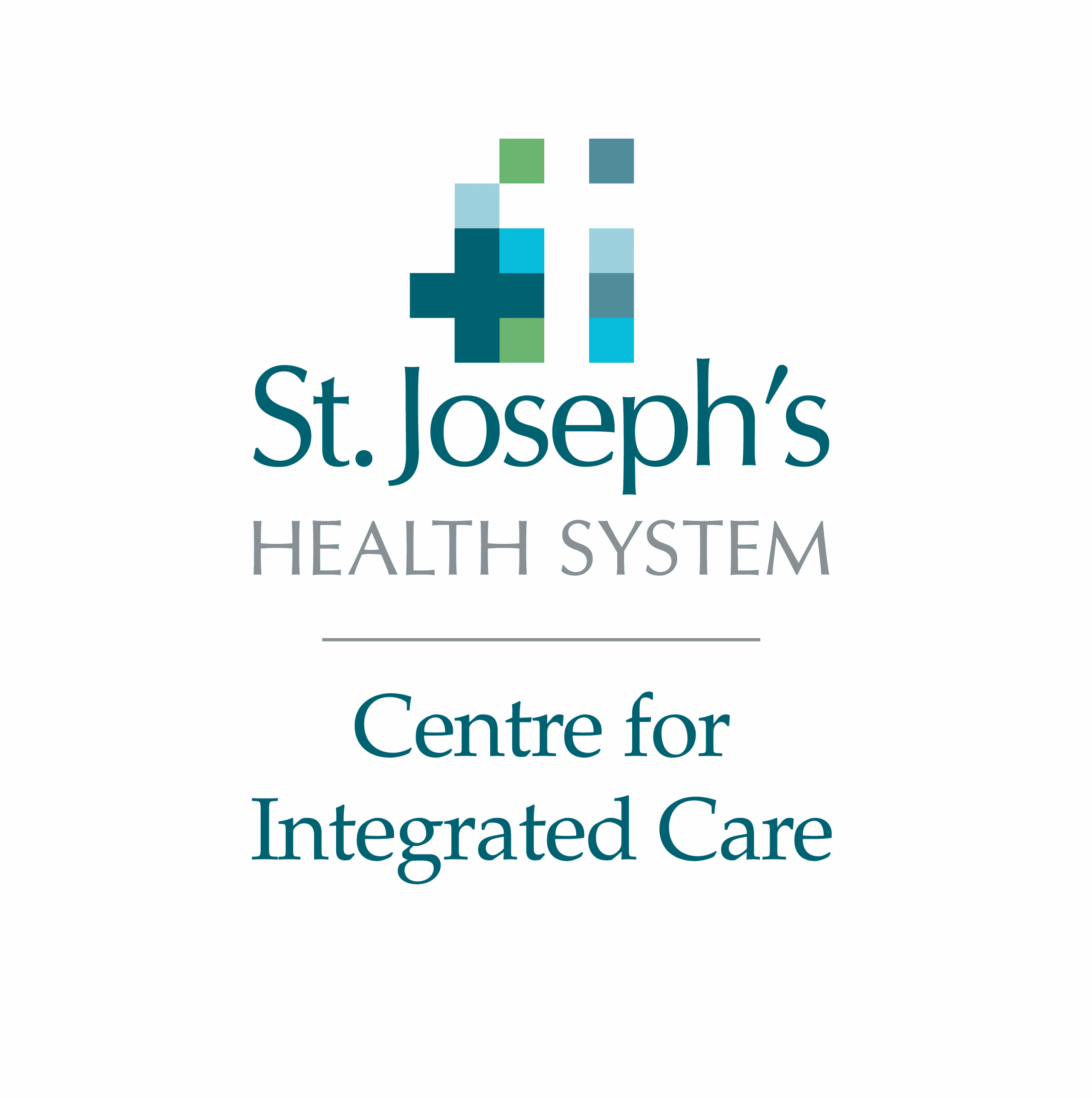The Assertive Community Treatment Team
The Assertive Community Treatment Team provides community-based support and rehabilitation to adults with severe and persistent mental illness. Many ACTT clients have been given the diagnosis of schizophrenia, which is a challenging condition that sometimes makes it difficult to tell what is real and unreal, think clearly, manage emotions, relate to others and complete daily tasks. The team helps out with whatever the client identifies as a need, such as managing medication, trips to their family doctor and having a supportive ear whenever they need it.
Our team, which includes a psychiatrist, peer support worker, nurses, social workers, mental health worker and an occupational therapist, works collaboratively seven days a week to provide this community-based support.
5th Floor Gilgan Family Wing416-530-6130
8 a.m. to 4 p.m.
Referrals
- If you are a community health provider please complete thisreferral form.
Rbc Mental Health Short Stay & Transitional Age Youth Unit
The RBC Mental Health Short Stay & Transitional Aged Youth Unit provides age-appropriate and therapeutic services for young adults, aged 19 to 25, who are making the transition from adolescent to adult care. Patients in this age group are assessed through the Emergency Department and Mental Health Emergency Services Unit and may be transferred to the MHSSU-TAY if its determined that they would benefit from a short inpatient stay for mental health treatment and stabilization. Unfortunately we cannot provide counselling services over the phone.
Current programming on the unit includes group sessions focused on distress tolerance, coping strategies, mindfulness and emotional regulation. Sessions are meant to encourage recovery, socialization and skill building in this transitional-aged youth population.
Seventh floor Fax: 416-530-6000 ext. 6201
The Psychiatric Intensive Care Unit
The PICU is a safe and controlled environment for patients with a broad spectrum of acute and persistent mental health needs. The six-bed unit provides mental health care and treatment for individuals whose acute distress, suicidal or challenging behavior needs a secure environment beyond that which can normally be provided on regular psychiatric units.
The purpose of this unit is to manage and reduce the risks associated with acute episodes of mental illness, while respecting patients privacy and dignity. The care and intervention provided in the program helps patients develop the skills, insight, education and confidence required to return safely to another unit or to the community.
7th Floor Morrow WingFax: 416-530-6509
You May Like: What Is The Disease Of Addiction Mean
What Is Problematic Opioid Use
Problematic substance use happens when someone uses drugs or alcohol in a way that has harmful effects on their health and life.
Problematic opioid use is using opioids that are not prescribed to you or not following the instructions from your doctor and pharmacist. It also includes using illegal opioids.
What This Program Does

St. Josephs Healthcare Hamilton is the regional leader in the provision of psychiatric care and research, innovating programs to help radically reduce the disability and stigma associated with mental illness and addiction. Specifically, St. Josephs is a leader in the areas of early intervention, outreach services, rehabilitation, recovery and integration into the community.
Recommended Reading: How To Tell If You Are Addicted To Nicotine
Fathers Mental Health And Assessment
Our Fathers Mental Health Assessment and Treatment Service offers a consultation and treatment service for expecting and new fathers, as well as fathers with young children. This service provides a comprehensive outpatient assessment on a consultative basis. The assessment process may include a telephone intake interview followed by an assessment by a psychiatrist. For more information please visit www.fathersmentalhealth.com.
Referrals
- Physicians may make a referral by completing the Fathers Mental Health referral form.
Mental Health & Substance Use Disorder Help Is Available In The Tri
If you or a loved one are experiencing anxiety, depression, or other mental health challenges during this time of increased stress and would like a caring professional to talk to, please do not hesitate to call St. Josephs Open Access Center, located at our Robert R. Reiss Community Service Center in Saranac Lake.
St. Josephs Open Access Center offers a safe and stigma-free environment for people with mental health challenges, substance use disorders, and other challenges to seek help whenever they are ready including extended hours into the evening, weekends and holidays.
Were at 50 John Munn Rd. in Saranac Lake.
Saranac Lake, NY 12983
Read Also: How Can I Stop My Addiction
What To Do If You Suspect An Overdose
If you think someone is overdosing on fentanyl or any other opioid:
- use naloxone, a drug that can temporarily reverse the effects of an opioid overdose
- naloxone wears off in 20 to 90 minutes, so it is important to seek further medical attention
- give the person another dose of naloxone if signs and symptoms do not disappear or if they reappear
Staying at the scene of an overdose is important to help save the life of the person experiencing an overdose. The Good Samaritan Drug Overdose Act provides some legal protection for individuals who witness an overdose and call 911 or their local emergency number for help.
Adult Mental Health Inpatient Unit
The Adult Mental Health Inpatient Unit or 7M is a 29-bed unit providing inpatient care and treatment for people in the acute phase of a severe mental illness. We provide thorough assessment, care planning, interventions and evaluation.
A multidisciplinary team consisting of psychiatrists, nurses, psychiatric attendants, a psychiatric resident, general practitioner, occupational therapist, social worker, therapeutic recreationist, pharmacist, chaplain help to provide patients with individualized care plans. We offer a range of therapeutic and leisure group activities.
7th Floor Morrow WingFax: 416-530-6105
Recommended Reading: Why Is Porn So Addictive
Community Connections Case Management Program
This team of psychiatrists, nurses, social workers and occupational therapists provides intensive case management services for people living with serious mental illness, substance abuse issues or homelessness. To access this program apatient referral formmust be completed by a psychiatrist within the Mental Health and Addictions service.
Children And Youth Received Care In Our Child Adolescent & Family Mental Health Unit
St. Joes is known for its expertise and compassion in caring for people with mental illness. St. Josephs Health Centre has among the highest number of programs for mental health with specialists to treat children, youth, adults and seniors. These include:
- Addiction Services
- Adult Inpatient Mental Health Unit
- Adult Outpatient Mental Health Unity
- Child Adolescent and Family Mental Health
- Outpatient Withdrawal Management Services
Also Check: How To Treat Pot Addiction
Stigma Makes It Harder To Reach Out For Help
We can make it easier for people to get support by letting them know they are not alone, and that substance use does not define who they are. Addiction is a treatable medical condition, not a choice.
People who use drugs, especially those struggling with addiction face discrimination and barriers to getting help.
Stigma can:
- lead a person to avoid getting help because they are afraid of judgement or getting in trouble with work, their loved ones or even the law
- cause a person to hide their drug use or use drugs alone
- affect a person’s ability to find housing and jobs, which affects their health and quality of life
- contribute to people who use drugs receiving a lower quality of care from the healthcare system when they access services
Addiction Is Not A Choice

There is a common misconception that addiction is a choice and that people can stop using drugs when they want to. Addiction is complex. People develop addictions because of many reasons, including:
- events in life, especially trauma and chronic stress
- environmental factors
- mental well-being
- genetics and biology
Some people try drugs once or use them occasionally. Others use drugs more often, sometimes to try to cope with trauma or pain. No matter the reason, no one chooses to become addicted. Addiction and physical dependence make it hard to stop using drugs even when it’s hurting you or people in your life. Recovery is possible but it looks different for everyone.
Read Also: Has Anyone Died After My Strange Addiction
When Does Problematic Use Become A Substance Use Disorder
When someone regularly uses drugs or alcohol despite continued negative consequences, they may have substance use disorder.
It is a medical condition that requires treatment from health care providers. Substance use disorders can involve both psychological and physical dependence.
If someone you know has one or more of the following behaviors, they may be experiencing a substance use disorder:
- constant cravings for the drug
- compulsive drug seeking
- continuous use despite the harms that the drug is causing, such as:
- negative health effects
- lower grades or marks at school
- isolation from friends and family members
- extreme changes in behaviours and mood
Naloxone Can Save A Life
Naloxone is a fast-acting drug used to temporarily reverse the effects of opioid overdoses. Naloxone can restore breathing within 2 to 5 minutes.
While naloxone is only active in the body for 20 to 90 minutes, the effects of most opioids last longer. This means that the effects of naloxone are likely to wear off before the opioids are gone from the body, which causes breathing to stop again. So it is important to call for emergency medical attention. Naloxone may need to be used again, depending on the amount, type, or how the opioids were taken .
Naloxone is available without a prescription and can be picked up at most pharmacies or local health authorities. It is available in an injection or a nasal spray format.
Learn more about naloxone and where to find kits in your province or territory.
Did you know?
The Good Samaritan Drug Overdose Act protects you from simple drug possession charges if youve taken drugs or have some on you. The law applies to the person who has overdosed, the person who seeks help, and anyone at the scene when help arrives.
Don’t Miss: Can You Get Addicted To Adderall If You Have Adhd
Adult Outpatient Mental Health Unit
As part of the Emergency, Mental Health and Addictions Services, our Outpatient Mental Health program provides client-centred care to adults through a variety of hospital- and community-based programs.
Outpatient Mental Health includes seven programs that provide a wide range of treatment options for individuals with mental health concerns. The main clinic space is on the 5th floor of the Morrow Wing, extending into the Gilgan Family Wing and is accessible from the main elevators in the Morrow wing. We also have two programs on the 7th floor of the Morrow Wing.
Our interdisciplinary teams of practitioners provide the following range of mental health services:
- Mental health assessment and treatment recommendations
- Community support
- Collaborative care with community primary care providers
- Access to supportive and/or adjunctive services within the mental health and addictions program
5th Floor Gilgan Family Wing416-530-6591
The Outpatient Mental Health unit includes:
Withdrawal Management Residential Services
Designed to promote wellness and recovery from substance abuse in a residential setting, our voluntary non-medical withdrawal management service facility houses 26 beds for clients. Our team includes addiction service workers, unit service aides and a unit secretary. We provide a complete withdrawal management service including:
- Support and basic care during withdrawal
- Help in identifying and making referrals for other medical assistance if needed
- Assistance in identifying other treatment resources and services
- Psycho-educational groups
- Auricular acupuncture
- Links to self-help programs as well as other community supports
Glendale House, 87 Glendale Ave.416-530-6141Monday to Friday, 9 a.m. to 5 p.m.
Withdrawal Management ResidentialGlendale House, 87 Glendale Ave.1-866-366-9513
Monday to Friday, 9 a.m. to 4:30 p.m.
Also Check: Am I Addicted To Video Games
How To Get Help
Getting help can mean different things for different people and it can take many different forms. For some people it may mean complete abstinence or continued treatment using opioid replacement therapies such as methadone or buprenorphine.
There are also many health and social services available across Canada including non-medical therapies, such as counselling, or support from people with lived and living experience.
Find out what resources are available in your province.
How you can help. A small change can help reduce the cycle of stigma
Stigma around substance use can prevent people from getting the help that they need. You can help by:
Listening with compassion and without judgment, so a person who uses drugs feels heard and understood
Speaking up when someone is being treated disrespectfully because of their substance use and
Being kind with the words you use. Words Matter. Use people first language.
- Instead of junkie use a person who uses drugs
- Instead of addict use people who have used drugs
- Instead of drug abuse use substance use
Beds For Crystal Meth Treatment 5 Dedicated To Those Seeking Help With Other Addictions
A new treatment centre for people recovering from drug addiction has opened in Saskatchewan’s southeast.
A total of 30 beds are available at the new facility, located in St. Joseph’s Hospital in Estevan.
Fifteen of the new beds are dedicated to people recovering from crystal meth addiction, while five spaces are available to people seeking treatment for other addictions. There are also four pre-treatment and six post-treatment beds available.
“Saskatchewan, like many provinces, has seen a dramatic increase in the use of crystal meth over the past few years,” Lelia McClarty, an executive director with the Saskatchewan Health Authority, said.
“We expect will reduce the wait time for inpatient treatment with individual treatment plans and longer stays as needed.”
Read Also: Video Game Addiction And Mental Health
What Are The Side Effects Of Ketamine And What Should I Do If I Have Them
The doses of ketamine that are used for depression are much lower than the dose used for anesthesia. This makes it quite safe and side effects are usually limited. Any side effects usually appear within 2 hours of infusion and go away between 4 to 24 hours afterwards.
The most common short term side effects of ketamine used for this purpose include:
- A sense of dissociation
- Increased blood pressure and increased heart rate
These symptoms appear during treatment and disappear shortly afterwards on their own. We can provide treatment for nausea during the infusion. We will monitor for these symptoms throughout the treatment.
If you have side effects more than 24 hours after your treatment, or the side effects are getting worse:
- Contact our office at 416-864-3920 during business hours
- Or go to your nearest emergency department
How Long Do The Effects Of Repeated Doses Of Ketamine Last

We do not know this with certainty. Here is what research has shown so far for patients who have significant improvement:
- After a single treatment of IV ketamine, effects can appear within a few hours, peak at 24 hours after the treatment, and often remain for at least 1 week.
- After repeated treatments, the effects can be longer. People remain well between several days to several months. Some people remain well for longer periods of time.
- People could maintain the benefits with more doses of ketamine or with other treatments . Please note that we dont currently have enough research about the best ways to maintain benefits following one series of IV treatments. At this time, booster treatments or maintenance with other forms of ketamine are not covered by OHIP.
You May Like: Self Help Addiction Recovery Program
Child Adolescent And Family Mental Health
The Child, Adolescent and Family Mental Health Program at St. Josephs includes a six-bed inpatient unit, an outpatient day hospital, an urgent care clinic and a perinatal Fathers Mental Health Service.
The Child and Adolescent Program offers a wide range of services for children under the age of 19. These include crisis support in case of emergencies, urgent care follow-ups, inpatient hospitalization, outpatient day hospital, transitional support to community services and time-limited individual outpatient services.
Our care team includes:
- Learners and trainees in various disciplines
3rd Floor Our Lady of Mercy building416-530-68258 a.m. to 4 p.m.
Changing How You Talk About Drug Use
The language you use has a direct and deep impact on people around you. You can reduce stigma by changing the words you use to talk about drug use. Using kind words can make it easier for someone to speak up, to feel understood or to receive help.
You can:
- use person-first language, for example say ‘person who uses drugs’ instead of ‘drug user’
- use neutral, medically accurate words when describing drug use
- avoid slang such as “addict” and “junkie”
- use language that shows care and concern, rather than judgement
- speak up when you hear someone being treated or talked to in a disrespectful way
- use language that acknowledges and promotes the fact that recovery from addiction is possible, and looks different for everyone
Don’t Miss: How I Broke My Sugar Addiction
Provincial And Territorial Health And Support Services
| Resource | |
|---|---|
|
|
|
1-800-665-1822 |
|
| Resource | ||
|---|---|---|
| HealthLine |
|
8-1-1 |
|
List of pharmacies that carry naloxone |
| Resource | |
|---|---|
|
1-866-531-2600 |
|
1-866-797-0000 |
|
1-866-925-5454 |
| Resource | |
|---|---|
|
1-800-661-0844 |
